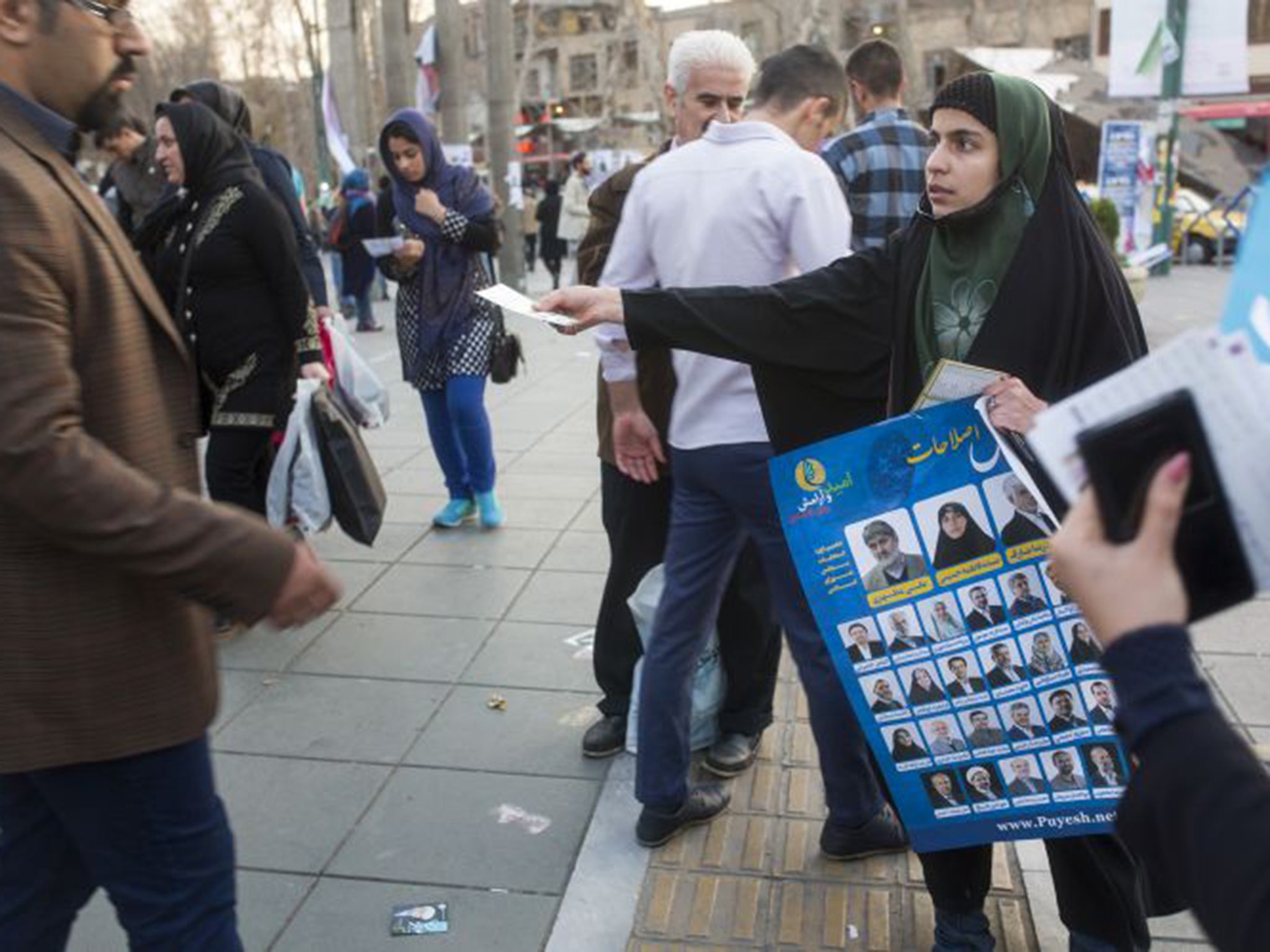Iran elections: Pro-nuclear deal reformists gain ground
Reports in the semi-official Fars and Mehr news agencies showed hardliners losing ground in the 290-seat legislature

Early election results in Iran show that reformists who favour expanding democratic freedoms and improving relations with the West had increased their presence in parliament and in the body responsible for selecting the next Supreme Leader.
Reports in the semi-official Fars and Mehr news agencies showed hardliners losing ground in the 290-seat legislature. None of Iran’s three main political camps – reformist, conservative and hardline – was expected to capture a majority, but the reformist camp is on track for its best showing in more than a decade.
A victory for reformists would be a boost for the moderate President Hassan Rouhani, who championed the newly implemented nuclear deal with world powers in the face of hardline opposition.
Initial results also showed moderates gaining ground in the 88-member Assembly of Experts, which will select the successor to 76-year-old Ayatollah Ali Khamenei, the country’s top decision-maker since 1989.
State TV reported that Mr Rouhani and former president Akbar Hashemi Rafsanjani, a relative moderate, are on track to keep their seats on the assembly, which is elected every eight years.
The two were leading in the Tehran constituency, which will send 16 candidates to the assembly and is thought of as the political bellwether. Just three of the Tehran clerics who were on track to win are hardliners, down from six who currently serve in the assembly. There were no immediate results from other constituencies, and vote counting was still under way. The current assembly has only about 20 moderates.
Nearly 55 million of Iran’s 80 million people were eligible to vote. Participation figures were not immediately available, but Interior Minister Abdolreza Rahmani Fazli said participation was likely to exceed 60 per cent, based on the partial counting of the votes.
The election was the first since last summer’s nuclear agreement was finalised, lifting international economic sanctions in exchange for Iran curbing its nuclear programme.
AP
Subscribe to Independent Premium to bookmark this article
Want to bookmark your favourite articles and stories to read or reference later? Start your Independent Premium subscription today.

Join our commenting forum
Join thought-provoking conversations, follow other Independent readers and see their replies